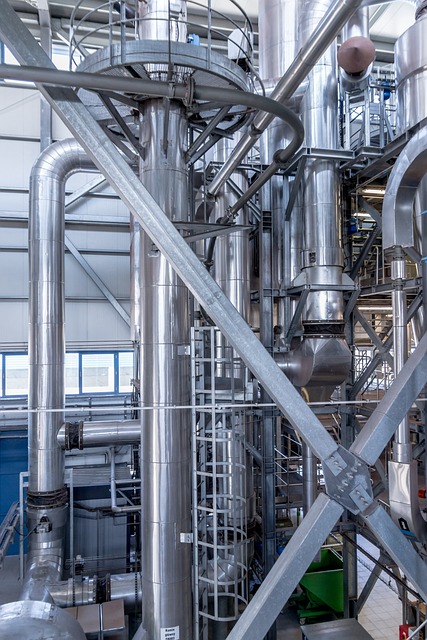Boiler leasing offers businesses flexible financing for heating system upgrades, spreading costs over time and avoiding large upfront investments. Boiler finance options include full leases with maintenance or operational leases, providing cost savings, cash flow flexibility, and budget predictability. This model is particularly beneficial for SMEs, enabling them to access modern, energy-efficient boilers while managing cash flow effectively. By exploring government programs and weighing options against traditional leasing or repairs, businesses can optimize resource allocation, reduce fuel costs, and foster environmental responsibility.
Boiler leasing is a game-changer for businesses seeking efficient heating solutions. This article demystifies the process, highlighting how boiler finance options can significantly benefit companies of all sizes. We’ll explore the basics of boiler leasing, its advantages, and critical considerations when selecting a plan. By understanding these factors, businesses can optimize their operations, streamline maintenance, and unlock substantial cost savings through strategic boiler finance options.
- Boiler Leasing: Understanding the Basics
- Benefits of Boiler Finance Options for Businesses
- Choosing the Right Leasing Plan
- Streamlining Maintenance and Cost Savings
Boiler Leasing: Understanding the Basics

Boiler leasing offers businesses an alternative financing option when it comes to replacing or upgrading their heating systems. Instead of a one-time significant investment, this model allows companies to spread out payments over time, making it more budget-friendly. It’s akin to renting, but with ownership rights, as businesses can choose from various boiler finance options tailored to their needs and financial capabilities. These programs often come with maintenance and repair services included, ensuring peace of mind for business owners who might not have extensive knowledge of boiler systems.
For instance, a plumber in Bromsgrove could assist a local business in transitioning to a new, more efficient boiler through a lease-to-own program. This approach enables them to replace their old boiler with no money down, spreading the cost over months or even years. Such flexibility can be a game-changer for small and medium-sized enterprises, helping them stay competitive while managing cash flow effectively.
Benefits of Boiler Finance Options for Businesses

Many businesses often overlook the financial benefits of boiler finance options when considering equipment upgrades. However, leasing a boiler can provide significant advantages for companies looking to optimize their operations and reduce costs. One of the primary perks is the ability to access the latest technology without a substantial upfront investment. By partnering with financier, firms can upgrade to more energy-efficient boilers, leading to long-term savings on utility bills and contributing to environmental sustainability goals.
Additionally, boiler finance options offer flexibility in managing cash flow. Businesses can choose lease terms that align with their financial plans, allowing them to refinance boiler debt or even explore government funded boiler upgrades, which are available for eligible organizations. Non-profit entities can also access support through specialized programs designed to facilitate boiler replacement, ensuring these essential industrial assets remain operational while keeping expenses manageable.
Choosing the Right Leasing Plan

When considering boiler leasing for your business, the first step is to evaluate and choose the right leasing plan that aligns with your company’s needs and financial goals. Boiler finance options come in various forms, including full lease agreements, where the leasing company owns and maintains the boiler, and operational leases that allow businesses to use the equipment while making regular payments. Understanding these boiler gas financing models is crucial as it determines the cost-effectiveness of the upgrade or replacement.
Additionally, exploring government funded boiler upgrades can be a strategic move for many businesses. These initiatives often provide financial support for energy-efficient technologies, including modern boilers that can significantly reduce fuel costs. However, it’s essential to weigh these options against traditional leasing or even considering if boiler repair is not worth repairing, depending on the age and condition of your existing system.
Streamlining Maintenance and Cost Savings

Boiler leasing offers businesses an efficient solution to manage their heating systems with streamlined maintenance and significant cost savings. By choosing boiler gas financing or exploring same-day approval boiler loans, companies can bypass the traditional investment barrier associated with purchasing new equipment. This approach is particularly advantageous for businesses looking to optimize their financial resources, especially when managing multiple properties. With a rental option, regular maintenance becomes the responsibility of the leasing company, ensuring your system operates at peak performance while you focus on other core aspects of your business.
The benefits extend beyond maintenance; boiler leasing provides flexibility and predictability in budgeting. Instead of facing unexpected costs due to equipment failure or obsolescence, businesses can plan their expenses with fixed rental payments. Moreover, financing a boiler for rental property allows companies to leverage various lease terms, including options for upgrading to more energy-efficient models as technology advances, contributing to long-term cost savings and environmental sustainability.
Boiler leasing offers businesses an efficient boiler finance option, allowing them to access modern, energy-efficient boilers without upfront capital expenditure. By choosing the right leasing plan, companies can streamline maintenance, reduce costs, and navigate their heating requirements with flexibility and ease. This cost-effective strategy is a game-changer for many industries, ensuring businesses stay competitive while adopting sustainable practices.
